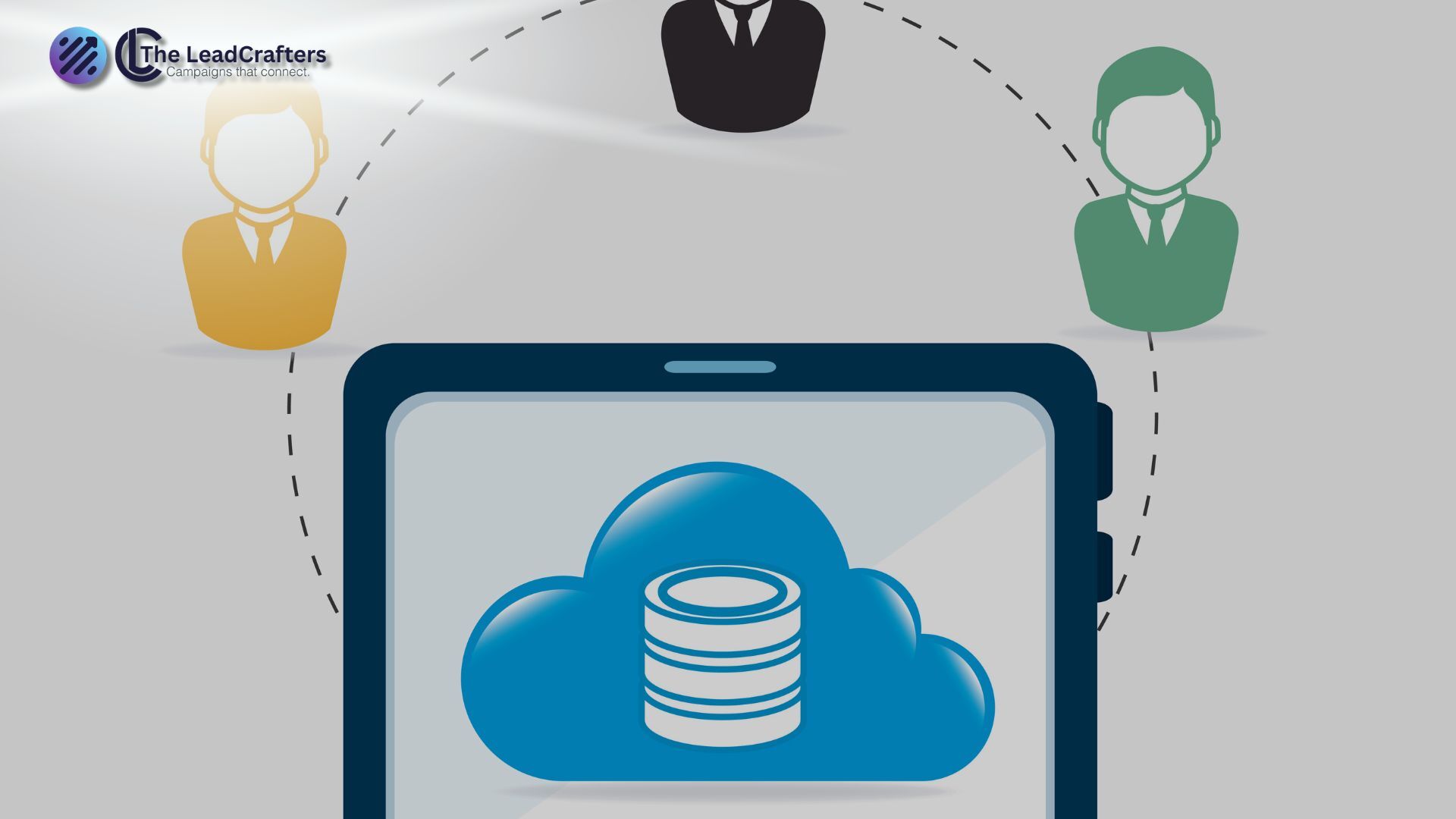In B2B sales and marketing, accurate and comprehensive data is the lifeblood of effective decision-making. Yet, data decay is inevitable—people change jobs, companies pivot, and markets evolve. Without ongoing maintenance, databases quickly become outdated, leading to wasted resources and missed opportunities.
AI-powered database enrichment and lead scoring has emerged as a game-changer for businesses aiming to keep their data fresh and actionable. By leveraging artificial intelligence, companies can enhance lead records with relevant information, predict conversion potential, and prioritize outreach for maximum ROI. This article explores how AI is transforming B2B database enrichment and scoring, the benefits it brings, and best practices for implementation.
What Is B2B Database Enrichment?
B2B database enrichment is the process of adding valuable attributes to existing lead or customer records. This may include:
- Firmographic data such as company size, industry, and location
- Technographic insights like software tools and technology stacks
- Behavioral data from website visits, downloads, and event participation
- Demographic details including job titles and seniority levels
The purpose is simple: to create a richer, more detailed profile of each prospect or customer. Enriched databases allow for better segmentation, more relevant messaging, and higher-quality lead scoring.
The Problems with Unenriched Data
Without enrichment, your sales and marketing teams may face:
- High bounce rates from outdated email addresses
- Poor targeting due to incomplete or incorrect firmographic details
- Longer sales cycles because reps spend more time qualifying leads manually
- Missed revenue from overlooking high-value prospects hidden in generic lists
Given that B2B data decays at an estimated 30% per year, enrichment isn’t optional—it’s essential.
How AI Transforms Database Enrichment
Traditionally, enrichment was manual or semi-automated, requiring human input and third-party research. AI has revolutionized this process in four key ways:
1. Real-Time Data Updates
AI tools continuously monitor multiple data sources—websites, press releases, social media, and public databases—to update contact and company details instantly. This ensures your database reflects the most current information.
2. Intelligent Data Matching
AI can merge records and identify duplicates far more accurately than traditional methods. It uses machine learning models to detect subtle variations in company names or job titles, reducing errors.
3. Predictive Insights
Beyond filling in missing fields, AI can predict relevant attributes. For instance, if a lead’s company is in the SaaS space and hiring developers, AI might infer their need for cloud infrastructure services.
4. Scalability
What once took weeks of manual research can now be done in hours—or even minutes—across thousands of records, making large-scale campaigns far more feasible.
Understanding AI-Powered Lead Scoring
Prospects are ranked by lead scoring according to how likely they are to convert. In the past, this meant using fixed rules, such as:
- +10 points for downloading a whitepaper
- +5 points for visiting the pricing page
- +15 points for a company in the target industry
While rule-based scoring is better than no scoring, it’s rigid and fails to adapt to changing buyer behaviors.
AI-powered scoring is different. Machine learning models analyze historical conversion data and continuously adjust the scoring criteria to reflect real-world outcomes. This means your sales team focuses on the most promising leads based on actual performance, not guesswork.
Key Benefits of AI in Enrichment and Scoring
1. Higher Data Accuracy
AI minimizes manual errors and keeps records updated, ensuring campaigns reach the right people.
2. Improved Targeting
Enriched profiles allow for highly specific audience segmentation—such as targeting CIOs at mid-market fintech firms using a particular software platform.
3. Increased Conversion Rates
By prioritizing leads most likely to buy, your sales team spends time on opportunities with the highest ROI.
4. Shorter Sales Cycles
Accurate data and smart prioritization mean less time spent on unqualified leads and more time closing deals.
5. Better Marketing ROI
With more precise targeting and reduced waste, marketing spend becomes more efficient.
How AI and Enrichment Work Together
When combined, AI-driven enrichment and scoring create a powerful feedback loop:
- Enrichment adds fresh, accurate data to the database.
- Scoring models use that data to identify high-value leads.
- Sales engages those leads, generating outcomes that feed back into the AI.
- The AI learns from these outcomes, improving future scoring and enrichment.
This continuous improvement cycle means your database and lead prioritization get smarter over time.
Tools and Platforms for AI-Driven Enrichment and Scoring
While there are many options, common features to look for include:
- Real-time enrichment APIs to keep records updated instantly
- Native CRM integrations for platforms like HubSpot, Salesforce, or Zoho
- Customizable scoring models to fit your industry and goals
- Compliance features for GDPR, CCPA, and other data privacy regulations
Some widely used platforms include ZoomInfo, Clearbit, Apollo.io, and Cognism—but the right choice depends on budget, scale, and data needs.
Best Practices for Implementing AI-Powered Enrichment & Scoring
- Start with a Clean Database
Remove duplicates, fix formatting issues, and eliminate invalid contacts before enrichment. - Define Your Ideal Customer Profile (ICP)
Knowing who you want to target helps the AI focus on the most relevant attributes. - Integrate with Your CRM
Ensure enriched and scored data flows directly into your sales and marketing tools. - Train the AI Models
Feed the system historical performance data so it can identify patterns unique to your business. - Monitor and Refine
Review results regularly and adjust enrichment sources or scoring criteria as needed.
Common Mistakes to Avoid
- Over-enrichment: Adding too much data can overwhelm teams. Focus on the most actionable fields.
- Ignoring Compliance: Ensure all enrichment sources follow data privacy regulations.
- One-and-Done Approach: Enrichment and scoring should be ongoing, not a single project.
- Lack of Sales-Marketing Alignment: Both teams should agree on scoring criteria to avoid wasted leads.
The Future of AI in Database Enrichment and Scoring
Looking ahead, AI will become even more sophisticated, incorporating:
- Explainable AI for transparency in scoring decisions
- IoT data integration for real-time behavioral insights
- Conversational AI to capture and enrich data during live interactions
- Predictive buying signals from cross-platform data sources
Businesses that embrace these advancements early will gain a significant competitive advantage.
Conclusion
In the fast-paced world of B2B marketing and sales, AI-powered database enrichment and lead scoring are no longer optional—they’re essential. Accurate, enriched data fuels better targeting, while AI-driven scoring ensures your teams focus on the prospects most likely to convert.
By implementing the right tools, maintaining clean data, and continuously refining your models, you can maximize conversion rates, shorten sales cycles, and boost ROI.
At The LeadCrafters, we help businesses harness the full power of AI to transform their lead generation strategies. From building enriched databases to designing intelligent scoring models, our solutions ensure you connect with the right prospects at the right time.



